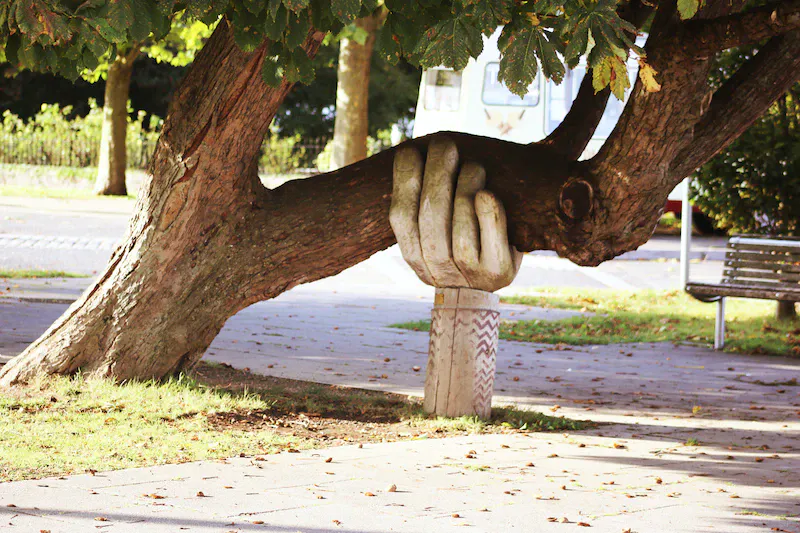The Lifelong Pursuit of Great Sex: A Comprehensive Guide to Sex Education

The Importance of Sex Education: A Lifelong Learning Process
Sex education is often viewed as a one-time class in school that covers the basics of contraception, sexually transmitted infections, and consent. However, as the speaker in the video script points out, great sex education goes far beyond these topics and should be viewed as a lifelong learning process.
The speaker explains that our sex lives are dynamic and go through different stages throughout our lives, from childhood to old age. Therefore, it is essential to have a comprehensive understanding of sexuality that includes the emotional, physical, and relational aspects of sex.
The first stage of the sexual lifecycle is childhood, where children’s sexual development is shaped by their environment. Parents who openly share their affection and intimacy with their children can create positive associations with intimate relationships.
As teenagers, we experience a whole new world of sexuality that can be exciting but also scary. Unfortunately, many teenagers turn to mainstream porn for answers, which can lead to unrealistic expectations and performance anxiety. Pleasure-based sex education can provide more age-appropriate and realistic information about sexual pleasure and help teenagers explore what they like.
In our 20s, we are encouraged to explore our sexuality without judgment. However, technology can be a double-edged sword, as it can make it easier to be intimate online but may not teach us how to build and sustain intimate relationships. Pleasure-based sex education can help us explore our desires safely and set boundaries.
In our 30s, some of us may have children, which can reduce both the quantity and quality of sex. Pleasure-based sex education can provide tips on how to spice up long-term relationships and navigate the dating jungle without frustration.
In our 40s and 50s, our bodies continue to change, and we may experience health conditions that impact our libido. Pleasure-based sex education can show us how to boost our libido and explore new sexual experiences beyond the act of penetration.
In our old age, we may have accumulated a lot of sexual knowledge and feel more confident about our sexuality. Pleasure-based sex education can provide new sex positions that are more comfortable and show us how to make the best out of our sexual experiences.
In conclusion, great sex education should enable all of us, regardless of our sexual orientation, age, culture, religion, or relationship status. It should be viewed as a lifelong learning process that can help us connect with ourselves and others on a deeper level.
Why Sex Education Should Go Beyond Pregnancy Prevention and Protection
Sex education has traditionally been focused on preventing pregnancy and protecting against sexually transmitted infections. While these are important topics, the speaker in the video script argues that sex education should go beyond them and include a comprehensive understanding of sexuality.
Great sex education should enable individuals to explore their desires, understand their bodies, and communicate with their partners. It should also help individuals feel more confident in their bodies and make them excited to explore them.
The speaker notes that our sex lives are dynamic and go through different stages throughout our lives. Therefore, we need to have a comprehensive understanding of sexuality that includes the emotional, physical, and relational aspects of sex.
For example, pleasure-based sex education can provide information on how to stimulate the clitoris or how oral sex works, which goes beyond pregnancy prevention and protection. This type of education can help individuals explore what they like and encourage them to talk about it.
Great sex education can also help individuals understand that our sex lives are not static and that they can change depending on our environment, relationship status, and physical health. Therefore, it should be viewed as a lifelong learning process and not just a one-time class we take in school.
In conclusion, sex education should go beyond pregnancy prevention and protection and include a comprehensive understanding of sexuality. Great sex education should enable individuals to explore their desires, understand their bodies, and communicate with their partners. It should also help individuals feel more confident in their bodies and make them excited to explore them.
The Sexual Lifecycle: Understanding the Stages of Sexual Development
Our sex lives are not static and go through different stages throughout our lives. The speaker in the video script refers to this as the sexual lifecycle. Understanding these stages can help individuals better navigate their sex lives and make them more fulfilling.
The first stage of the sexual lifecycle is childhood. Children’s sexual development is shaped by their environment. If parents openly share their affection, such as hugging or kissing, it can start to associate something positive with intimate relationships. This can be the best preparation for what comes later in our lives.
The second stage of the sexual lifecycle is adolescence. This is a time when we experience a lot of firsts and have many questions about sexuality. Unfortunately, teenagers often turn to mainstream porn to get their answers, which can lead to unrealistic expectations and performance anxiety. Pleasure-based sex education can introduce teenagers to ethically produced, age-appropriate, and more realistic porn, as well as information on how to stimulate the clitoris or how oral sex works.
The third stage of the sexual lifecycle is our 20s, which is when we are peaking in our sexual activity. We have the opportunity to explore without judgment, but we may also face challenges such as sustaining intimate relationships or building them. Pleasure-based sex education can teach us how to talk about intimate relationships and how to explore our desires safely by setting boundaries.
The fourth stage of the sexual lifecycle is our 30s, which is when we may have less sex than before due to having kids or other responsibilities. We may need tips on how to spice up our long-term relationships or how to navigate the dating jungle without frustration.
The fifth stage of the sexual lifecycle is our 40s, which is when we can enjoy sex much more. However, the chances of developing a health condition that impacts our libido are also increasing. Pleasure-based sex education can show us how to boost our libido and how to stay more fit for the bedroom.
The final stage of the sexual lifecycle is our 50s and beyond. Our bodies continue to change, and we may face challenges such as vaginal dryness or erection problems. Pleasure-based sex education can introduce us to new sex positions that are more comfortable and show us how to make the best out of our experiences.
In conclusion, understanding the stages of the sexual lifecycle can help individuals better navigate their sex lives and make them more fulfilling. Pleasure-based sex education can provide individuals with the tools they need to explore their desires safely and communicate with their partners.
Navigating Intimate Relationships in Your 20s: Pleasure-Based Sex Education
In our 20s, we are peaking with our sexual activity. We do it around 112 times per year or twice per week, and our libido is on fire. Thanks to the sex-positive social media culture, we are encouraged to explore without judgment. However, technology can be a double-edged sword here. According to one study, Gen Zers and millennials are now feeling more comfortable being intimate online. So, through, for example, sexting, video sex, and phone sex.
The current sex education neither teaches us how to build intimate relationships nor how to sustain them. But here, especially pleasure-based sex education could come in and introduce us on how to talk about intimate relationships and how to explore our desires safely by setting boundaries.
Here we have this beautiful momentum of this very sexually active time to experience so much. By prioritizing pleasure-based sex education and being open-minded, we can learn how to have better sex with our partners, explore our desires safely and communicate our needs effectively.
Sex Education in Your 30s: Maintaining Quality and Quantity of Sex
As we enter our 30s, our sex lives can undergo significant changes due to a variety of factors, including having children, changes in our physical health, and the demands of work and family life. While some may experience a decrease in sexual activity, others may find themselves seeking ways to maintain the quality and quantity of their sex lives.
Pleasure-based sex education can play a vital role in helping us navigate this phase of our sexual development. By providing information on how to spice up long-term relationships and maintain intimacy, sex education can help us stay connected with our partners and continue exploring our desires safely.
For those who are single or dating, sex education can offer valuable insights on navigating the dating world without frustration and building intimate relationships. Divorcees may also benefit from sex education by learning how to overcome the pain of a failed relationship and heal emotionally.
Overall, pleasure-based sex education offers a range of tools and strategies that can help us maintain a satisfying and fulfilling sex life, no matter what changes we may experience as we grow older. By prioritizing sex, finding education that is relevant to our needs, and practicing what we learn, we can continue to explore our desires and connect with ourselves and others in meaningful ways.
Sex Education in Your 40s and 50s: Boosting Libido and Redefining Sex
Just because you’re getting older doesn’t mean your sex life has to suffer. In fact, many people report experiencing a boost in their libido during their 40s and 50s. However, there can also be challenges that come with aging, such as decreased hormone levels, health issues, and changes in sexual functioning. That’s why it’s important to continue educating yourself about sex and maintaining open communication with your partner.
One important aspect of sex education in this stage of life is understanding that sex can take many forms and doesn’t always have to involve intercourse. This can be especially important for individuals dealing with health issues that make traditional intercourse difficult or uncomfortable. It’s also important to recognize that sexual pleasure and intimacy can be achieved through other activities such as cuddling, kissing, and touching.
Another key aspect of sex education for individuals in their 40s and 50s is understanding the effects that aging can have on sexual function. For example, women may experience decreased vaginal lubrication and elasticity, while men may experience difficulty achieving and maintaining an erection. However, there are many options available to address these issues, such as lubricants, hormone replacement therapy, and medications.
Finally, it’s important to recognize that a healthy sex life in your 40s and 50s requires ongoing effort and communication with your partner. This may mean trying new things, exploring different forms of sexual expression, and being open to change. By maintaining a positive and open attitude towards sex, individuals can continue to experience the many benefits of sexual intimacy well into their later years.
Lifelong Learning for Great Sex: Prioritizing, Finding Relevance, and Practicing
Sex education is not just about learning the basics of anatomy and preventing unwanted pregnancies or sexually transmitted infections. It is a lifelong learning process that requires prioritizing, finding relevance, and practicing.
Prioritizing sex education means recognizing that sexual health is an important aspect of overall health and wellbeing. It means making time to learn and explore new aspects of sexuality throughout one’s life. Sex education should not be limited to the classroom or to one’s youth.
Finding relevance in sex education means understanding how sexual health is relevant to one’s life at every stage. It means acknowledging that sexual desire and function may change throughout one’s life and seeking information and resources to help navigate those changes.
Practicing sex education means applying what has been learned in real-life situations. This may mean communicating with partners, exploring new sexual experiences, or seeking medical advice when necessary.
It is never too late to start or continue one’s sex education journey. As individuals age, their sexual health needs may change, and new questions may arise. Continuing to prioritize, find relevance in, and practice sex education can help individuals maintain healthy and satisfying sexual lives throughout their lives.
Conclusion
Sex education is an essential component of personal development, and it’s not just for teenagers. Regardless of age, sexual orientation, or relationship status, everyone deserves access to comprehensive and accurate information about sex and sexuality.
Through this blog post, we’ve explored the importance of sex education as a lifelong learning process that involves understanding the stages of sexual development, addressing unrealistic expectations, and redefining sex as we age. We’ve learned that sex education shouldn’t just be about preventing unwanted pregnancy and sexually transmitted infections, but also about hugging pleasure, intimacy, and healthy relationships.
As we navigate different stages of life, our sexual needs and desires can change. Sex education helps us understand our bodies and ourselves, and it enables us to make informed decisions about our sexual health and well-being. It’s never too late to learn about sex, and it’s never too late to prioritize our sexual health.
By prioritizing sex education, finding relevance, and practicing healthy habits, we can all experience great sex throughout our lives. Let’s continue to have open and honest conversations about sex and sexuality, and let’s work together to create a world where everyone has access to comprehensive sex education.




